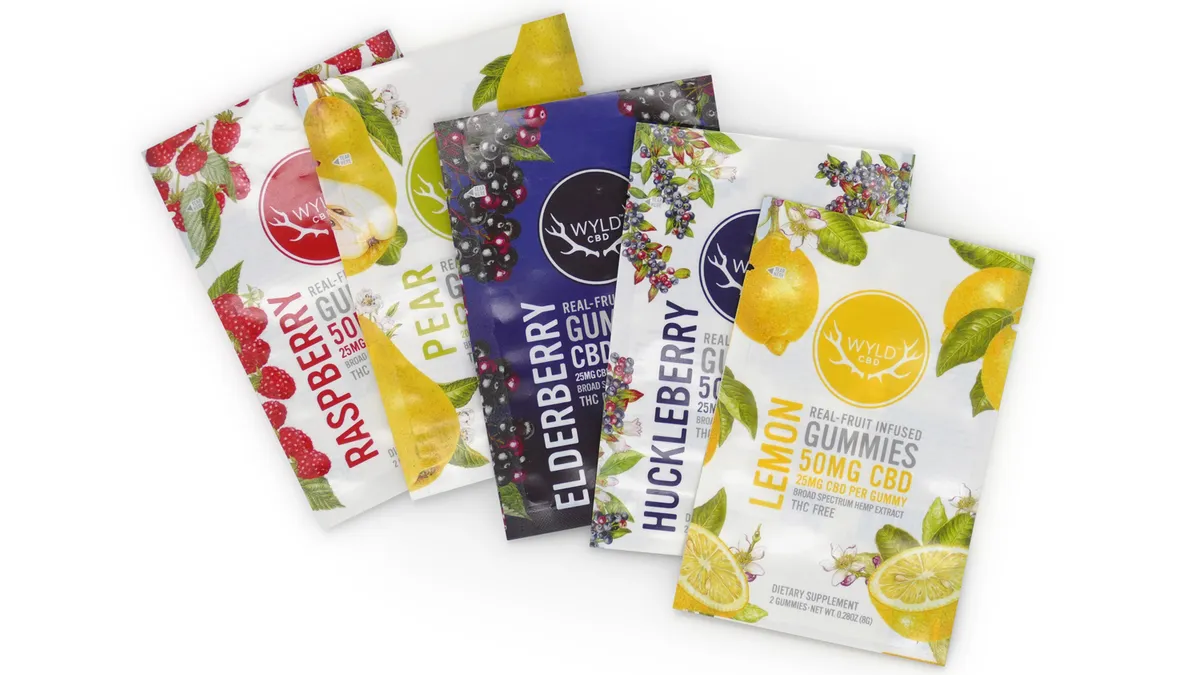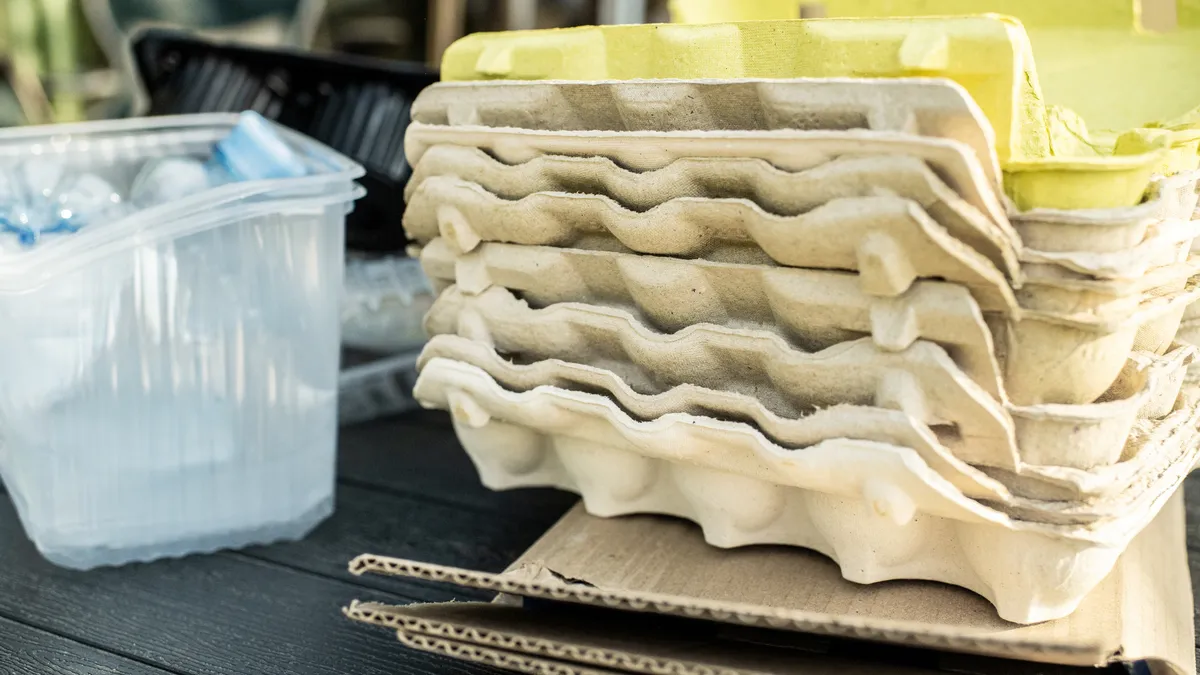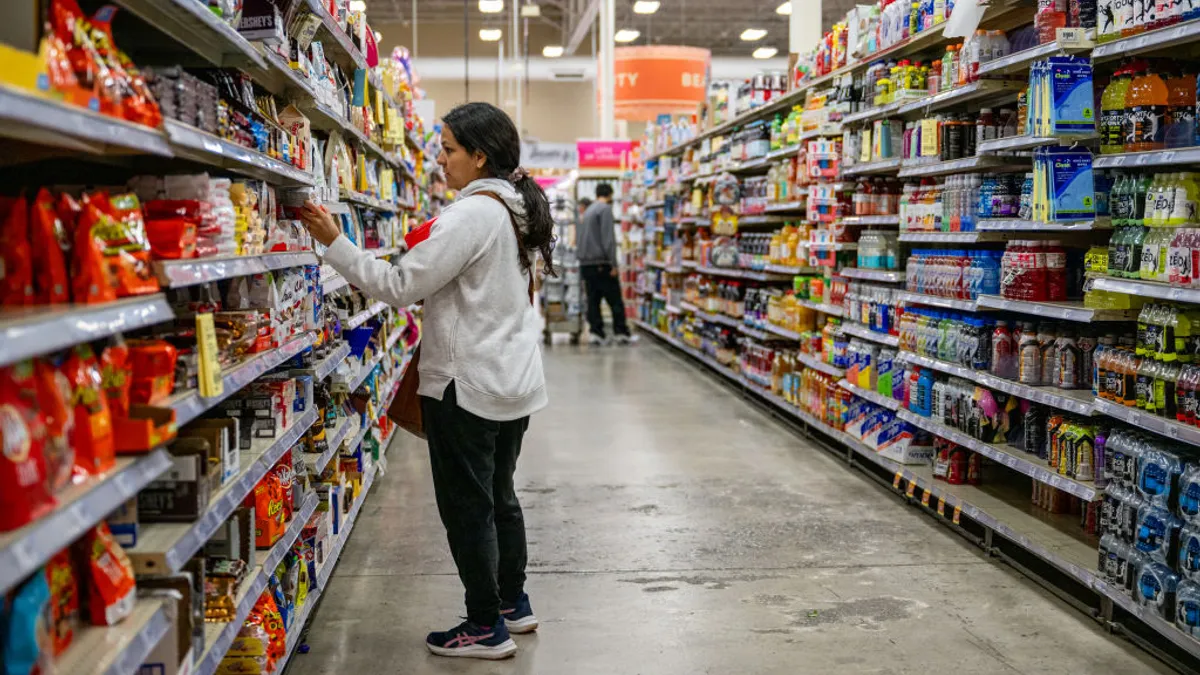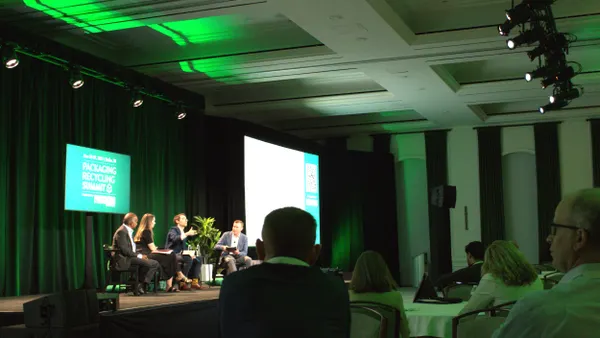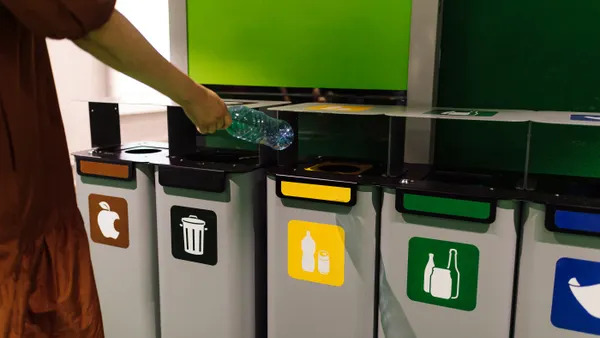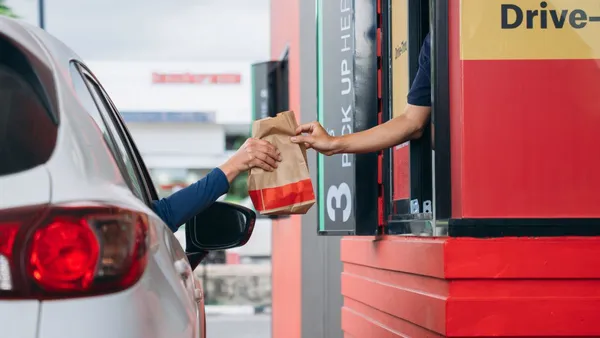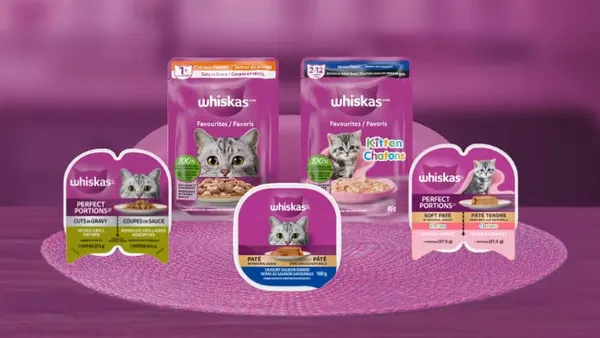Dive Brief:
- Compostable packaging company TIPA is expanding into the cannabis market, with an alternative to single-use plastic packaging for edibles. This marks a new market segment for the company, following recent expansion in the fashion and food industries.
- This week, it announced a partnership with cannabis product company Wyld to use TIPA’s 608 home compostable laminate in individual wrapping for edibles, as well as in pouches and bags for outer parcels, in the U.S. and Canada
- The two-ply laminate runs on most conventional plastic packaging machinery, according to TIPA, providing a compostable alternative to hard-to-recycle plastic products that are frequently used in individual wrappers and outer packaging for food products.
Dive Insight:
Developing industries that are experiencing fast growth, like cannabis, can be a big opportunity for packaging providers. TIPA’s announcement is the latest among compostable packaging companies that are seeking to gain market share in the cannabis sector.
According to data from Global Market Insights, the legal cannabis edibles market is projected to be worth more than $37 billion by 2032 globally, up from $8 billion in 2022.
“We offer products that are equal to conventional plastic, in terms of how to process the products,” said Daphna Nissenbaum, CEO and co-founder of TIPA. The packaging is said to offer good oxygen and moisture barriers, and it can be printed on.
Existing plastic machinery can be used to produce the laminate. This is a big benefit for any customer, but “specifically for big companies,” Nissenbaum said. “It’s critical for them that it runs on the same machinery… with the same pace, and in the same yield.”
The transparent 608 laminate is suitable for contact with all foods, except alcoholic beverages and baby food, and it is TÜV certified for composting at home. “Those packages … decompose and turn into fertilizer or compost within up to six months, as opposed to hundreds of years,” said Nissenbaum. TIPA also offers solutions for non-cannabis products that are certified by the Biodegradable Products Institute.
Since some state regulations require cannabis edibles to be individually wrapped, it can be challenging for brands to reduce packaging volume altogether. Wyld points out that in Washington state, where the company sold over 725,000 units in 2022, state regulations require all cannabis-infused edibles to be wrapped individually. It estimates the transition to compostable individual wrappers will save 7 million petroleum-based plastic pieces from disposal.
For Wyld, this partnership marks the latest in a series of sustainability efforts, including becoming a Climate Neutral Certified brand. The brand previously introduced “Canada’s first compostable cannabis packaging” in 2021, with further compostable expansion in 2022.
Kale Gray, senior brand manager at Wyld, said in a release that the company is “excited to introduce this innovative, eco-friendly packaging solution to its product line, demonstrating a proactive approach to reducing plastic waste.”
TIPA plans to produce an estimated 100 million units for Wyld this year — including individual wrappers and outer packaging — in the U.S. and Canada.
TIPA’s mission to replace single-use flexible plastics with compostable materials is part of an overall trend that is still in the earlier stages for cannabis products but is gaining more traction in the CPG industry as brands ramp up their sustainable packaging efforts.
“[For] every piece of product that is food or food derivative, it’s reasonable to pack with a compostable packaging, like nature did,” Nissenbaum said, adding that the interest from the cannabis edibles industry is encouraging. “I’m very glad to see that this industry [is seeking] such solutions.”
Editor’s note: This story has been updated to include production estimates from TIPA.


